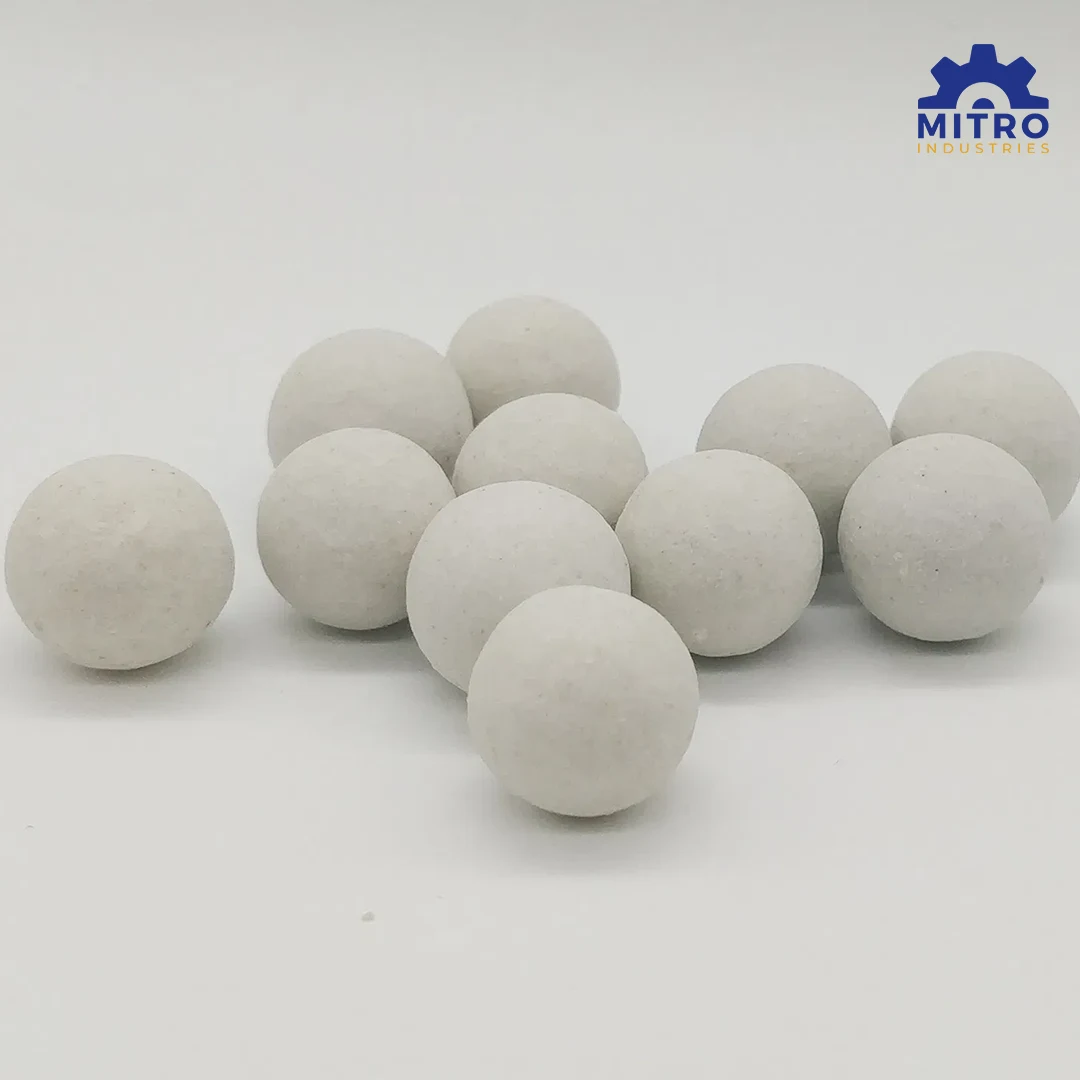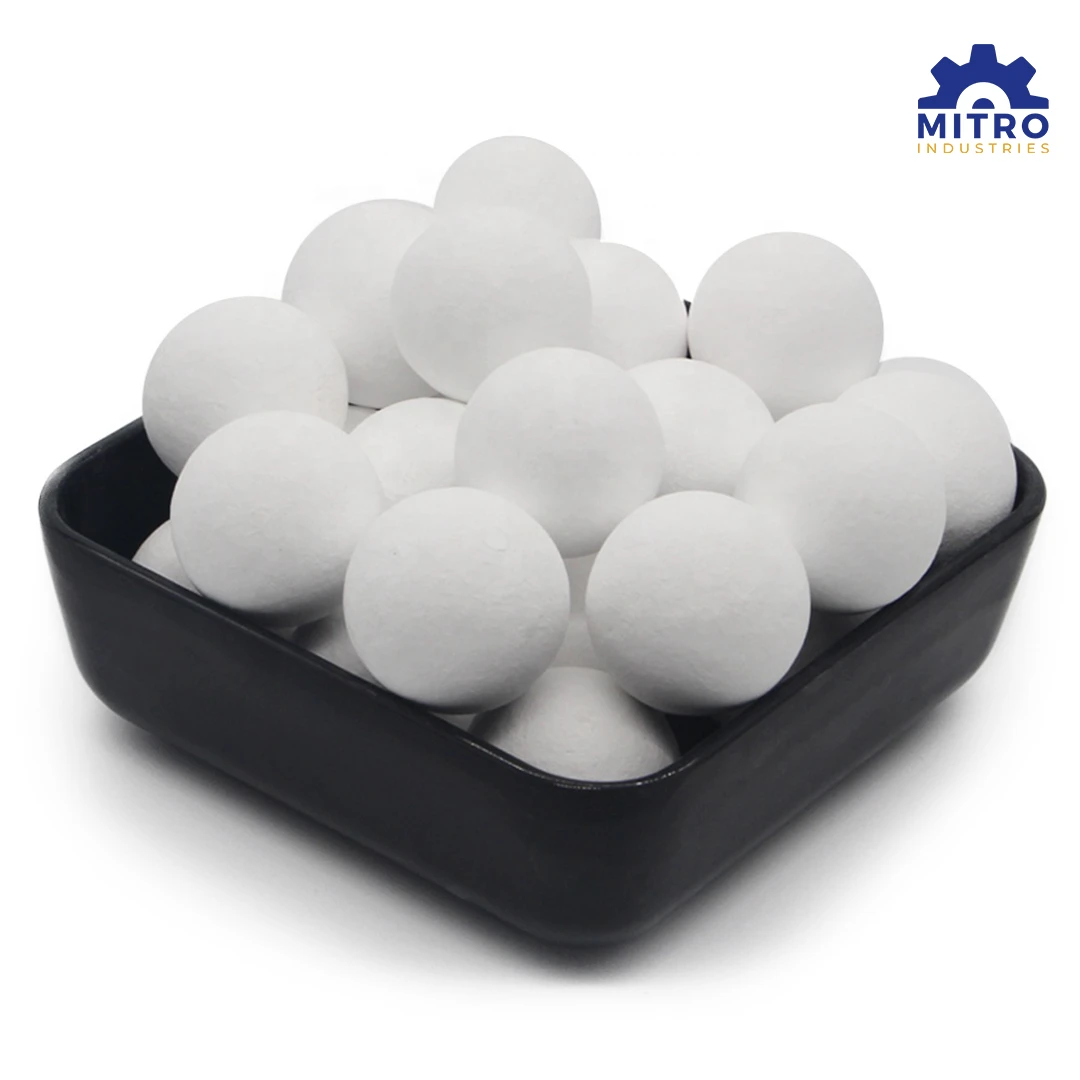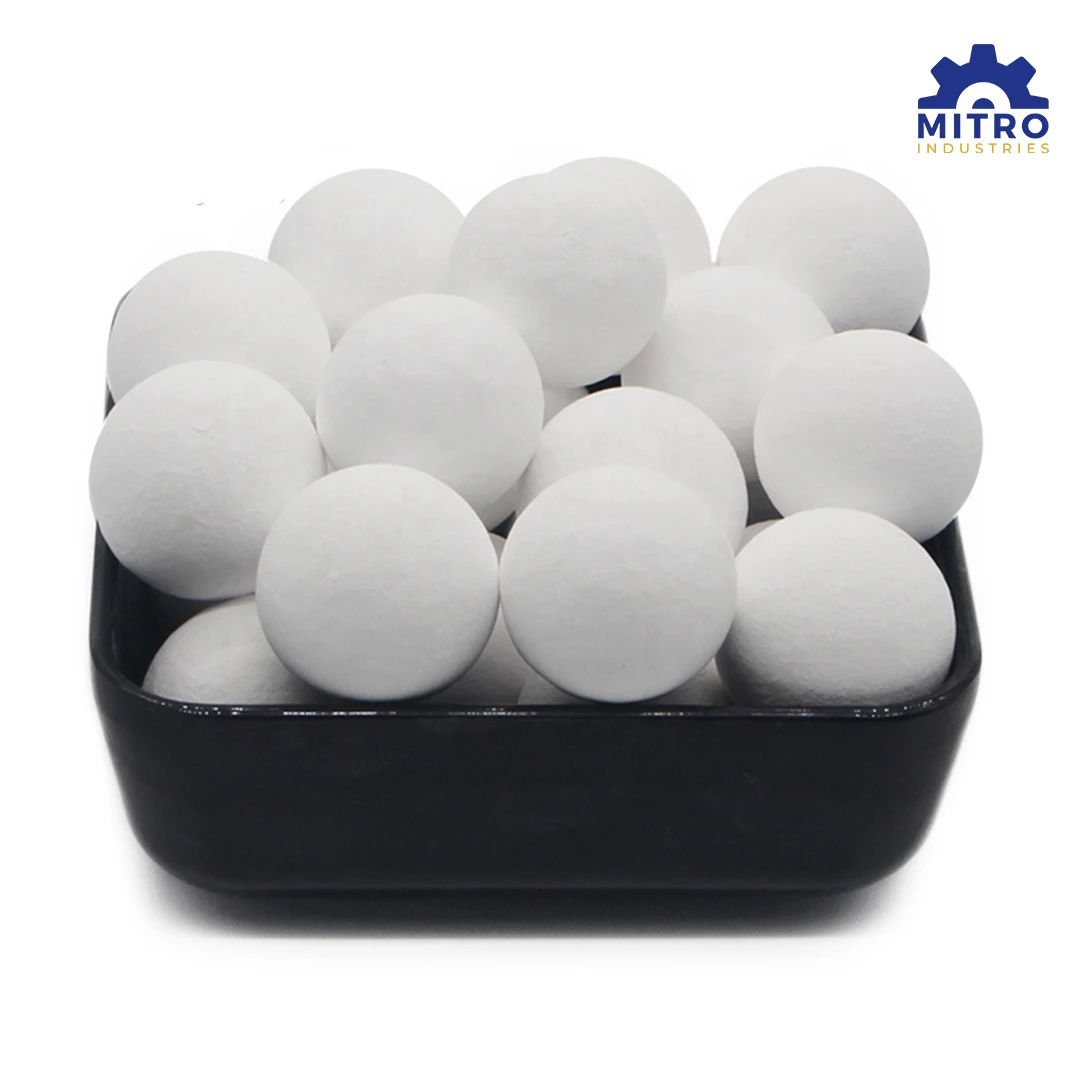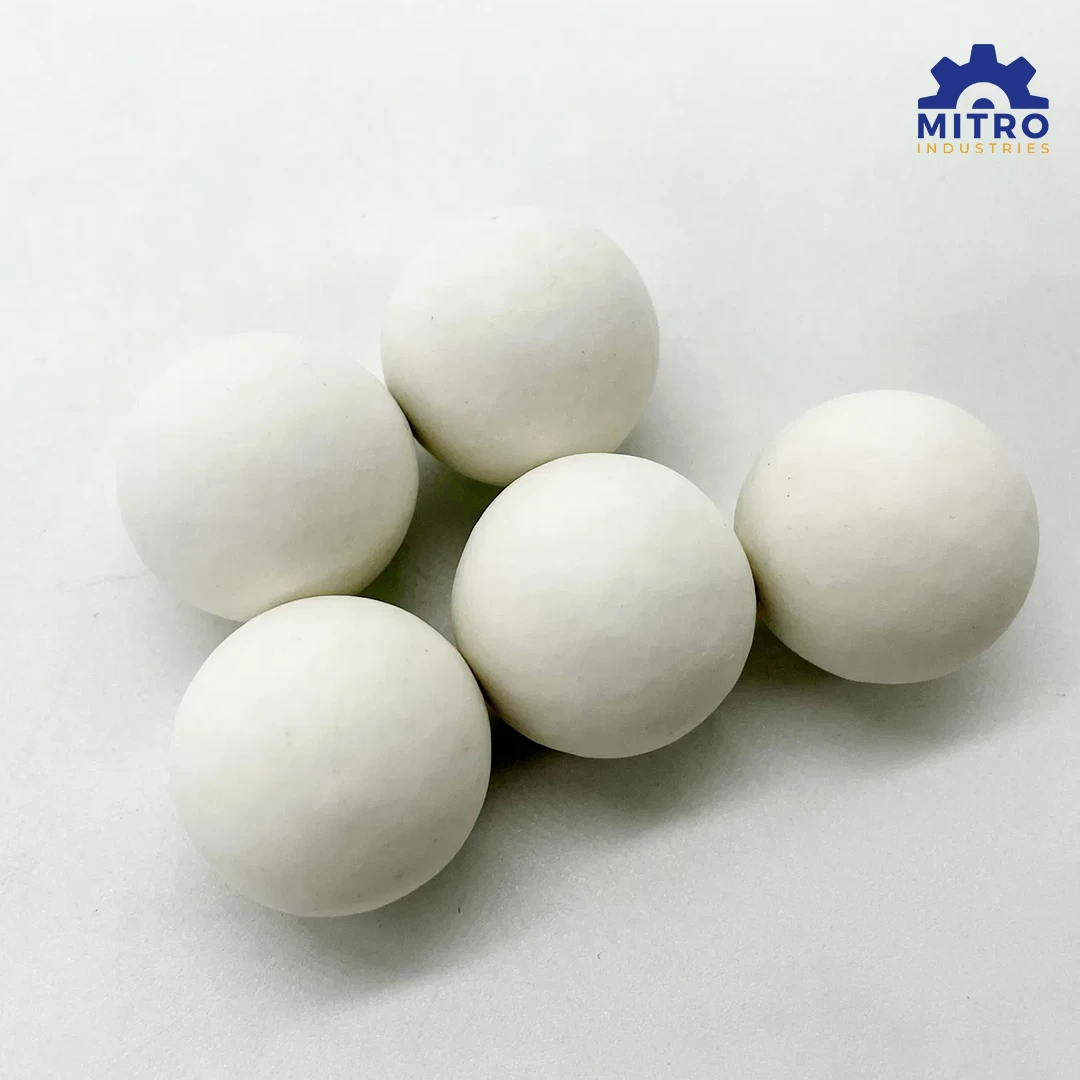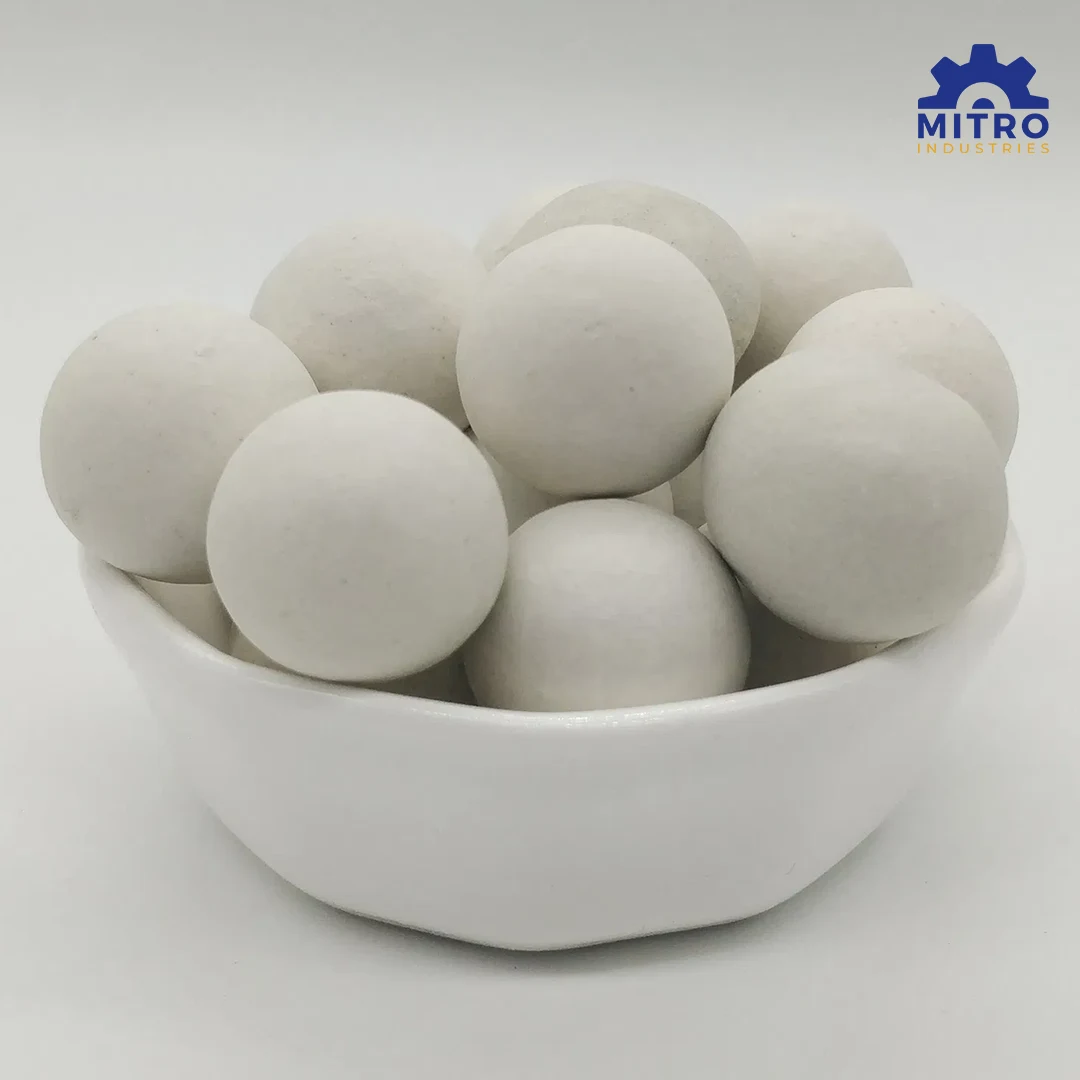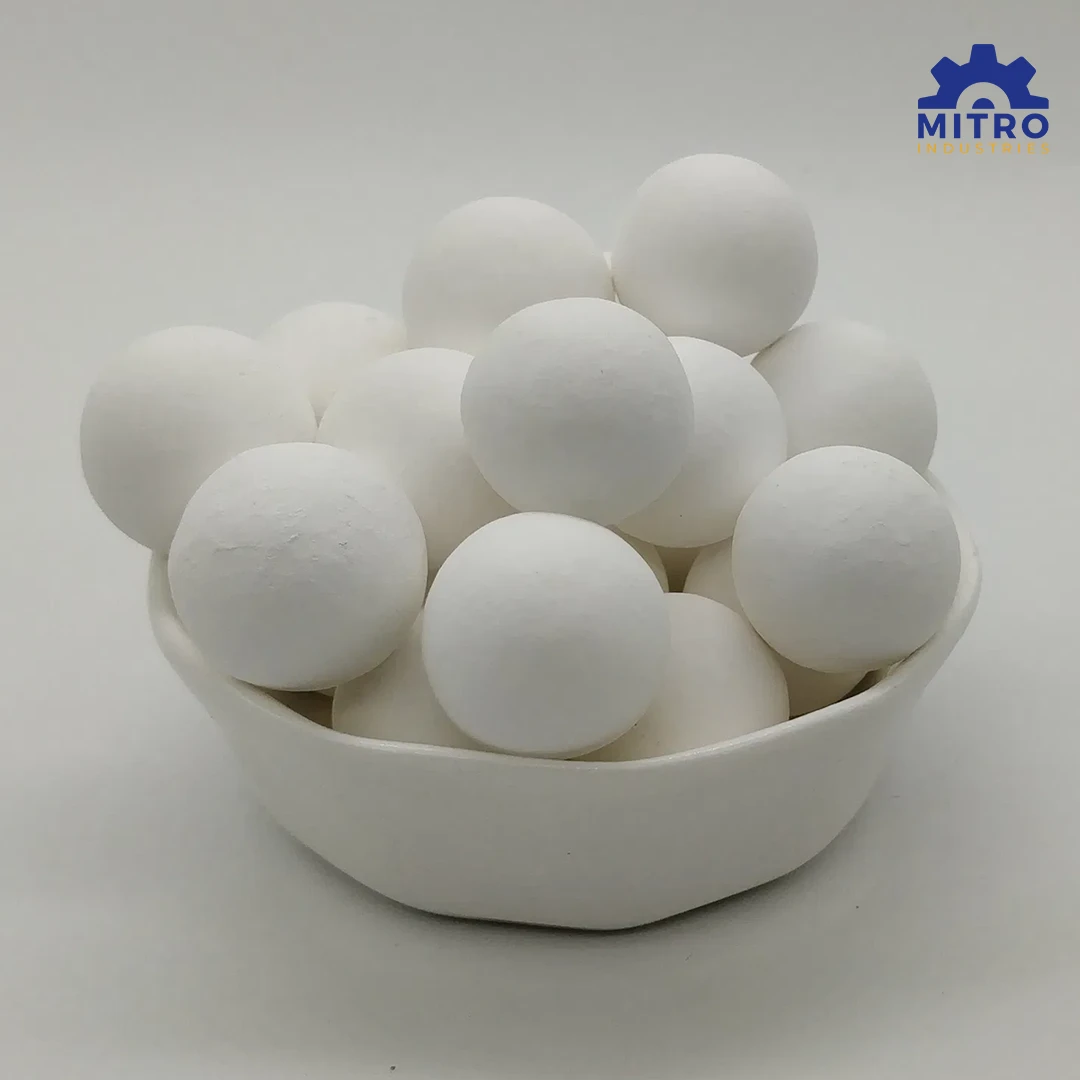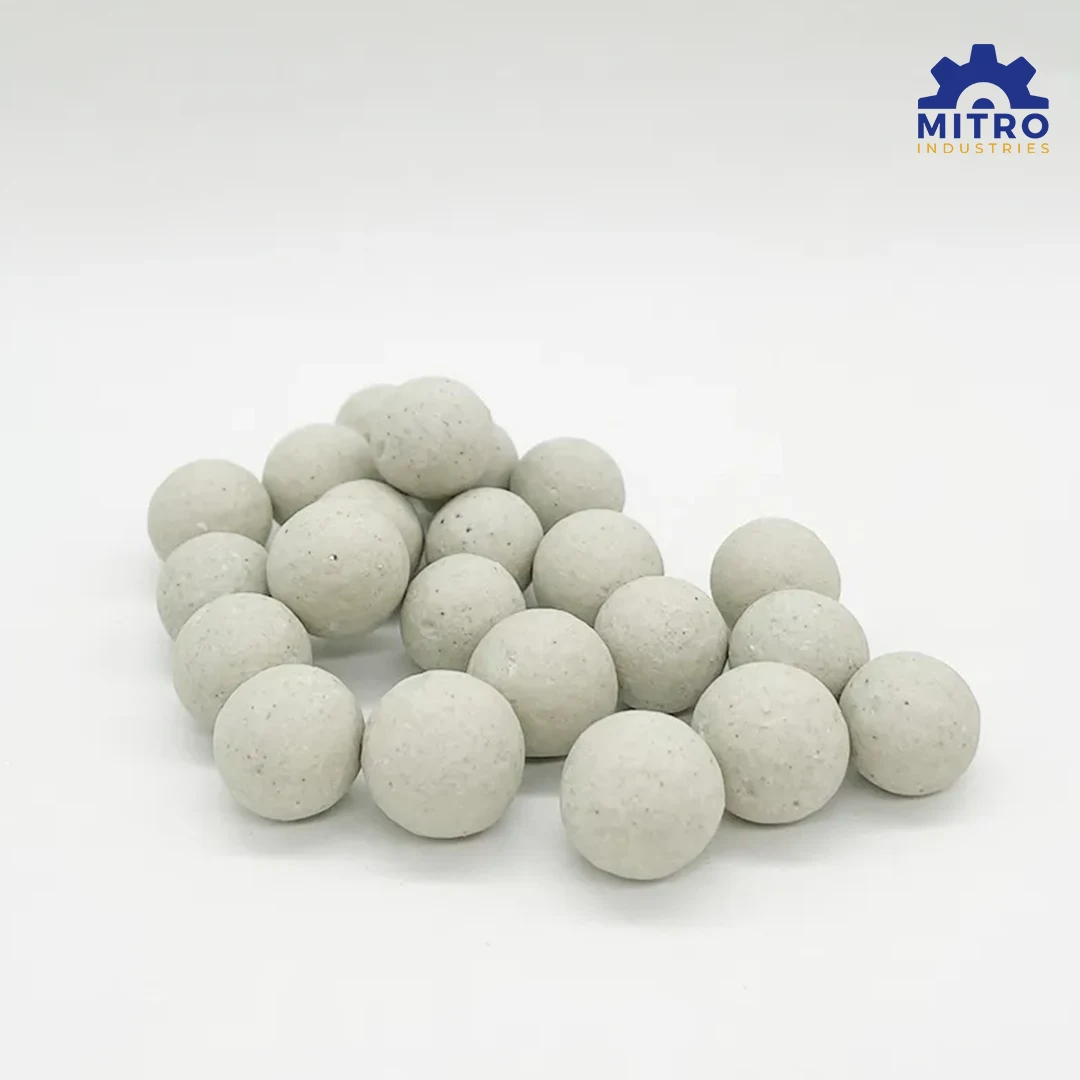Ceramic Balls Manufacturer
Tower packing ceramic balls are essential components in packed bed systems used across chemical, petrochemical, refining, environmental, and gas processing industries. View Complete Details...
Product Specification
Ceramic balls are primarily employed as support media at the bottom of packed towers, reactors, and other process vessels. Made from chemically inert and thermally stable ceramic materials, they ensure the efficiency, stability, and longevity of the packed bed.
What Are Tower Packing Ceramic Balls?
Ceramic balls used in tower packing are spherical support media made from high-purity ceramic materials such as
• Alumina (Al?O?)
• Silica (SiO?)
• Porcelain or steatite
• Silicon carbide (for high-performance applications)
They come in various sizes, typically ranging from 3 mm to 50 mm in diameter, depending on the process requirements.
Sizes of Ceramic Balls
| Size | Kg/Particle | KN/Particle |
| 1/8" (3mm) | >35 | >0.35 |
| 1/4" (6mm) | >60 | >0.60 |
| 3/8" (10mm) | >85 | >0.85 |
| 1/2" (13mm) | >185 | >1.85 |
| 3/4" (19mm) | >487 | >4.87 |
| 1" (25mm) | >850 | >8.50 |
| 1-1/2" (38mm) | >1200 | >12 |
| 2" (50mm) | >5600 | >56 |
Tolerance of Ceramic Balls
| Sizes | 3/6/9 mm | 9/13 mm | 19/25/38 mm | 50 mm |
| Tolerance | ± 1.0 mm | ± 1.5 mm | ± 2 mm | ± 2.5 mm |
Functions of Ceramic Balls in Tower Packing
1. Support Bed Layer
• Placed below structured or random packing.
• Provide mechanical support to the packing and catalyst layers above.
• Prevent the loss of finer media into distributor systems or outlets.
2. Promote Flow Distribution
• Help evenly distribute gas and liquid flows across the tower cross-section.
• Reduce channeling and dead zones, improving mass transfer efficiency.
3. Protect Packing and Catalysts
• Act as a buffer to thermal and mechanical shocks.
• Prevent catalyst fouling or breakage by absorbing load stress.
4. Enhance Operational Efficiency
• Minimize pressure drop.
• Maintain optimal contact between phases (gas/liquid).
Key Properties and Advantages
• High Mechanical Strength - Withstand the weight of packed materials and process fluids.
• Thermal Shock Resistance - Operate in systems with high and fluctuating temperatures.
• Corrosion Resistance - Chemically inert to most acids, alkalis, and solvents.
• Low Water Absorption - Maintain integrity in moisture-laden environments.
• Long Service Life - Highly durable, reducing maintenance and replacement frequency.
Types of Tower Packing Ceramic Balls
| Type | Alumina Content | Application |
| Inert Ceramic Balls | 17%–30% | General-purpose support media |
| Medium Alumina Balls | 40%–70% | Moderate corrosion/thermal applications |
| High Alumina Balls | 90%–99% | Harsh chemical environments, high heat |
| Porous Ceramic Balls | Varies | Enhanced surface area for fluid contact |
Common Applications
• Chemical Processing Towers
• Refinery Reactors
• Gas Sweetening Units
• Sulfur Recovery Units (SRU)
• Flue Gas Desulfurization (FGD)
• Pharmaceutical and Food-Grade Towers
Selection Criteria
• When choosing ceramic balls for tower packing, consider:
• Operating temperature and pressure range.
• Type of process fluid (corrosive, abrasive, etc.).
• Required void fraction and bed depth.
• Mechanical load of the packed bed.
Tower packing ceramic balls are crucial to ensuring the stable and efficient operation of packed bed systems. By serving as a durable, chemically inert support medium, they help optimize flow dynamics, protect sensitive components like catalysts, and reduce system downtime. Choosing the right ceramic balls — based on quality, composition, and process needs — is key to maximizing process performance and reliability.
Product related to Tower Packing
Find a similar products you may like
